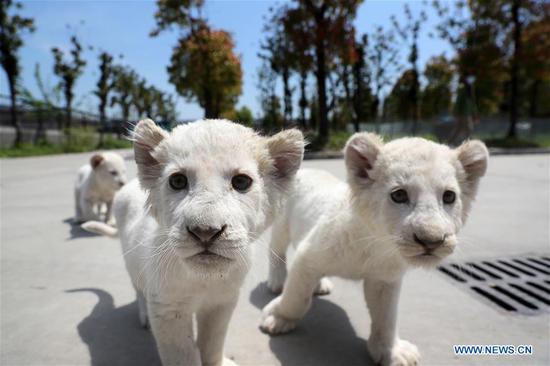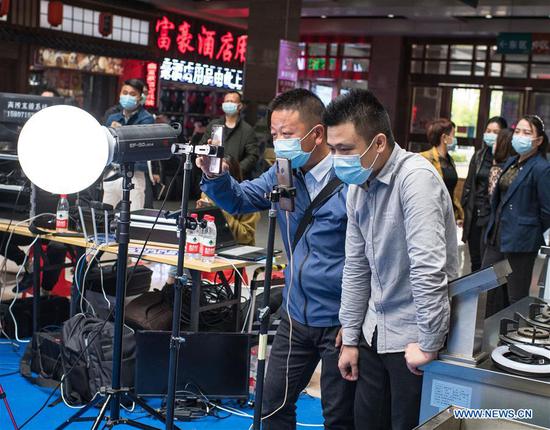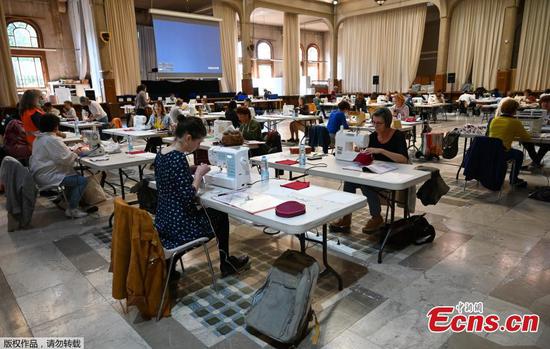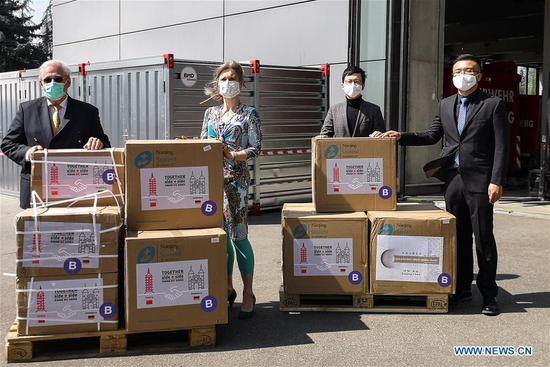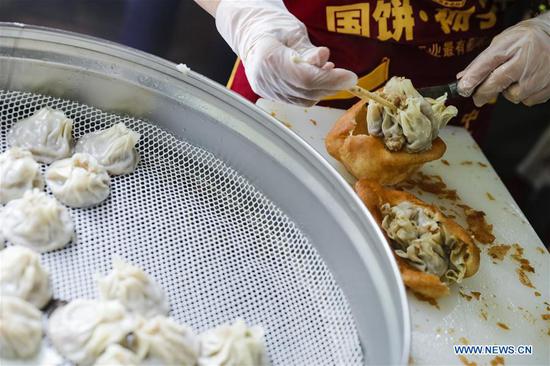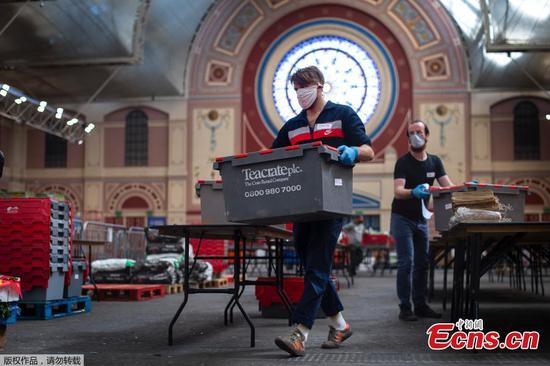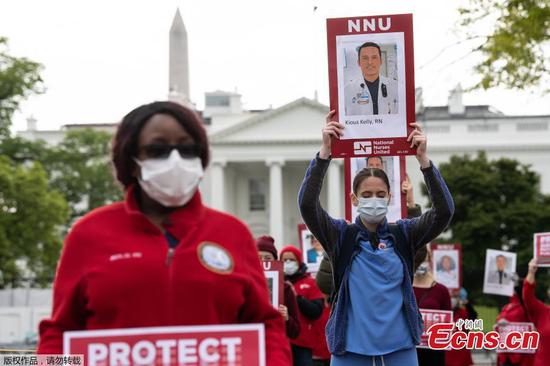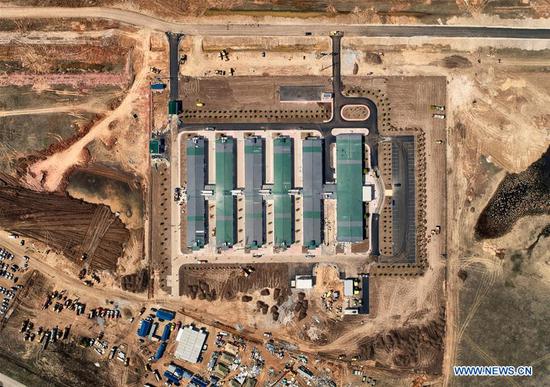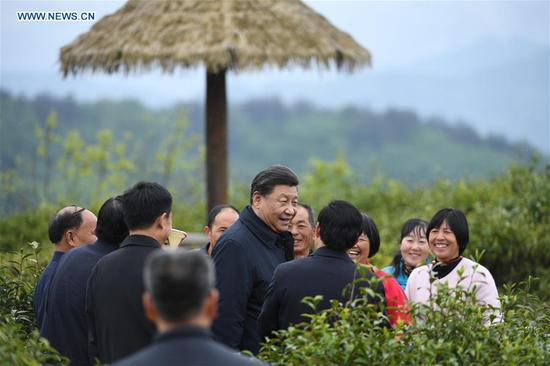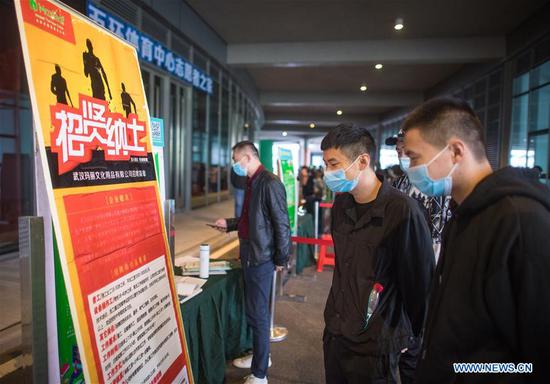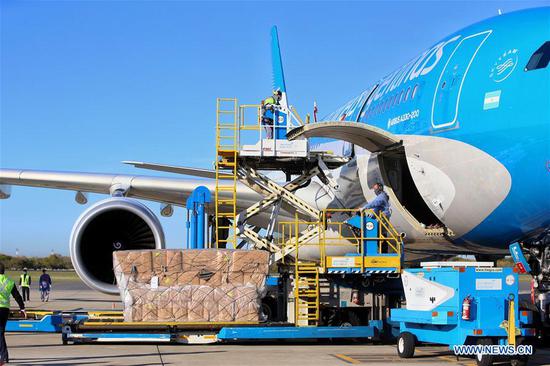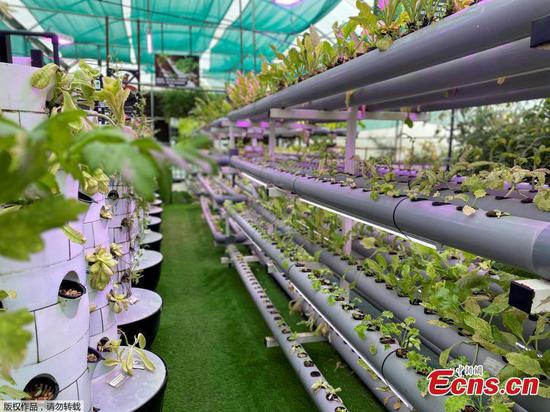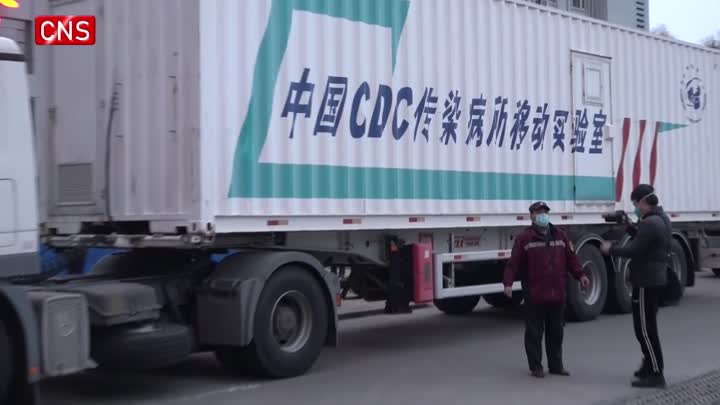
The national flags of China and the United States. (Photo/Xinhua)
China and the United States should take the opportunity to fulfill the phase-one China-U.S. economic and trade agreement to enhance cooperation and remove destabilizing factors to boost bilateral business ties, the Ministry of Commerce said on Thursday.
Against the background of the ongoing pandemic and falling bilateral trade volumes in recent years, China and the U.S. must avoid imposing new restrictions on trade and investment activities and jointly promote the healthy and stable development of bilateral economic and trade relations, said Gao Feng, the ministry's spokesman.
He said it is of utmost importance for the two countries to maintain economic stability by supporting the global economy and neutralizing the epidemic impact as early as possible.
Despite trade friction and tariffs, China is still a major market for U.S. exporters, according to the 2020 State Export Report, released by the U.S.-China Business Council earlier this month.
China was one of the top five goods export destination for 42 U.S. states last year. Many U.S. states generate substantial economic value from service exports, from licensing royalties to tourist spending, according to the Washington-based trade and investment promotional agency.
Though the trade disputes affected the overall value of U.S. companies and farms' exports to China over the past two years, Gao said the facts have once again proved that "there is no winner in the trade war, and cooperation is the only way out".
Huo Jianguo, vice-chairman of Beijing-based China Society for World Trade Organization Studies, said the outbreak has pushed China and the U.S. to enhance trade cooperation.
China's agricultural imports from the U.S. more than doubled in value during the first quarter of this year on a yearly basis, as the Sino-U.S. phase-one trade deal has been gradually fulfilled despite the COVID-19 outbreak, data from the General Administration of Customs showed earlier this month.
The country's imports of U.S. agricultural products amounted to 35.56 billion yuan ($5.04 billion) in the first three months of this year, an increase of 1.1 times on a yearly basis. Among them, soybean imports rose twofold to 7.81 million metric tons, pork imports by more than sixfold to 168,000 tons and cotton imports by 43.5 percent year-on-year to 124,000 tons, according to customs data.
Apart from boosting trade volume in medical equipment and agricultural products, as well as building partnership in vaccine research and development, Huo reiterated that it is also critical for China and the U.S.-the two largest economies in the world, to move from confrontation to dialogue and take more steps to ensure the smooth operation of global supply chains.
"After all, the economic recovery of China and the U.S. also depends on the success of the other countries and regions overcoming the contagion," he said, stressing it is time for them to aim for more cooperation and avoid recrimination to help both themselves and more countries out of the plight.










